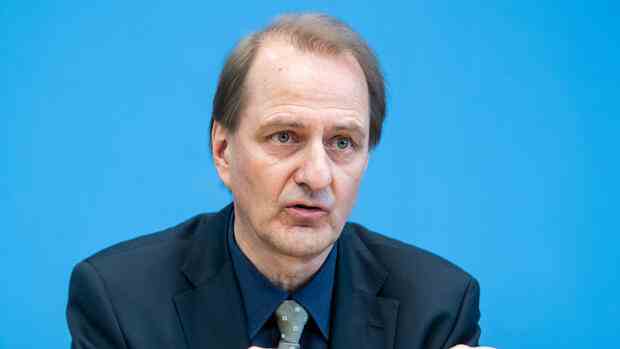Is the Minister of Finance too lax about our tax money?
The government has undertaken ambitious climate and environmental protection. How can you still have tax privileges on diesel, kerosene or on international flights today, when climate protection is a big issue under great time pressure? We promote climate protection efforts in many areas and at the same time apply the brakes. That is absurd. Unnecessary burdens arise for public budgets and thus also for citizens if the state simultaneously sets economic incentives for and against environmental and climate protection.
Hidden tax increases in subsidy reduction?
The FDP sees hidden tax increases in the reduction in subsidies. And these are excluded for citizens and business in the coalition agreement.
It’s not tax increases we’re talking about here.
With the commuter flat rate, the tax office recognizes a flat rate of 30 cents for trips to the first place of work per actual working day for each kilometer of one-way distance. From the 21st distance there are 35 cents each.
(Photo: AP)
Well, you can see it differently. For example, they propose reducing the tax privileges for diesel. The FDP sees at least an indirect tax increase here. And when you say that the company car privilege must end, then that means yes: life for company car users will become more expensive.
That’s true, but the goal is ultimately only that the pecuniary benefit of company cars must be fully taxed. At the end of the day, it’s about reducing the subsidies because they are a burden on many citizens and on the environment.
However, not every income group is burdened equally.
Above all, it is high earners who benefit from a whole range of these subsidies. We should fix this social imbalance. By the way: It’s not about going it alone on a national level. The G7 have agreed to phase out fossil fuel subsidies by 2025. We have also agreed on this at EU level. Germany has to deliver now.
But now we have a coalition of three parties, each of which wants to serve its own clientele: the Greens with an ecological transformation, the Liberals with low taxes and the SPD with social justice.
It would make sense if the traffic light developed climate neutrality strategies together, which at the same time promoted the modernization of the state. The FDP also wants such modernization. However, this is only possible with the right market economy instruments.
That means?
In the future, the maxim should apply: Anyone who damages the climate must be taxed, and those who behave in an environmentally friendly manner must be relieved.
But not everything can simply be decided in Berlin. Much is regulated in Europe.
That’s why we say: Of the 65 billion euros in environmentally harmful subsidies, about half can be reduced in this legislative period. The other half is legally regulated at European or international level. This applies, for example, to the VAT exemption on international flights or the taxation of kerosene.
>> Read here: Why so few German company cars are electrically powered
Which subsidies can we look at without the EU?
For example, we can abolish the diesel privilege for cars, the commuter allowance or the company car privilege.
There is always talk of abolition. Are compromises conceivable, for example with company car privileges?
Our suggestion is: the smaller the car is and the less CO2 it emits, the lower the taxation of private use of the company car should be.
Possible compromise?
Your compromise on the commuter allowance?
When it comes to the commuter allowance, one should concentrate on low-income people who also have to travel long distances to get there. At the moment, most of it goes to people with higher incomes: They have bigger cars with high fuel consumption. In addition, the commuter allowance favors the trend to move to the surrounding area, with which we are making a state contribution to even greater urban sprawl. Rather, we need investments in public infrastructure so that buses and trains become more attractive.
It is currently the case that both the transport and the building sector are not achieving their climate targets. Is the federal government breaking its own climate protection law?
We must become more ambitious and do everything possible in all sectors to ensure that by 2045 we do not emit more greenhouse gas emissions than we can absorb.
Is the transport minister breaking the climate protection law?
We need more speed in the transport sector. A program from the Ministry of Transport for this is not yet available.
Then Volker Wissing breaks the climate protection law, why don’t you say that?
Mr. Wissing does not achieve the goals. He should initiate measures that bring us closer to the goals.
More: The FDP’s advance on VAT causes trouble at traffic lights
